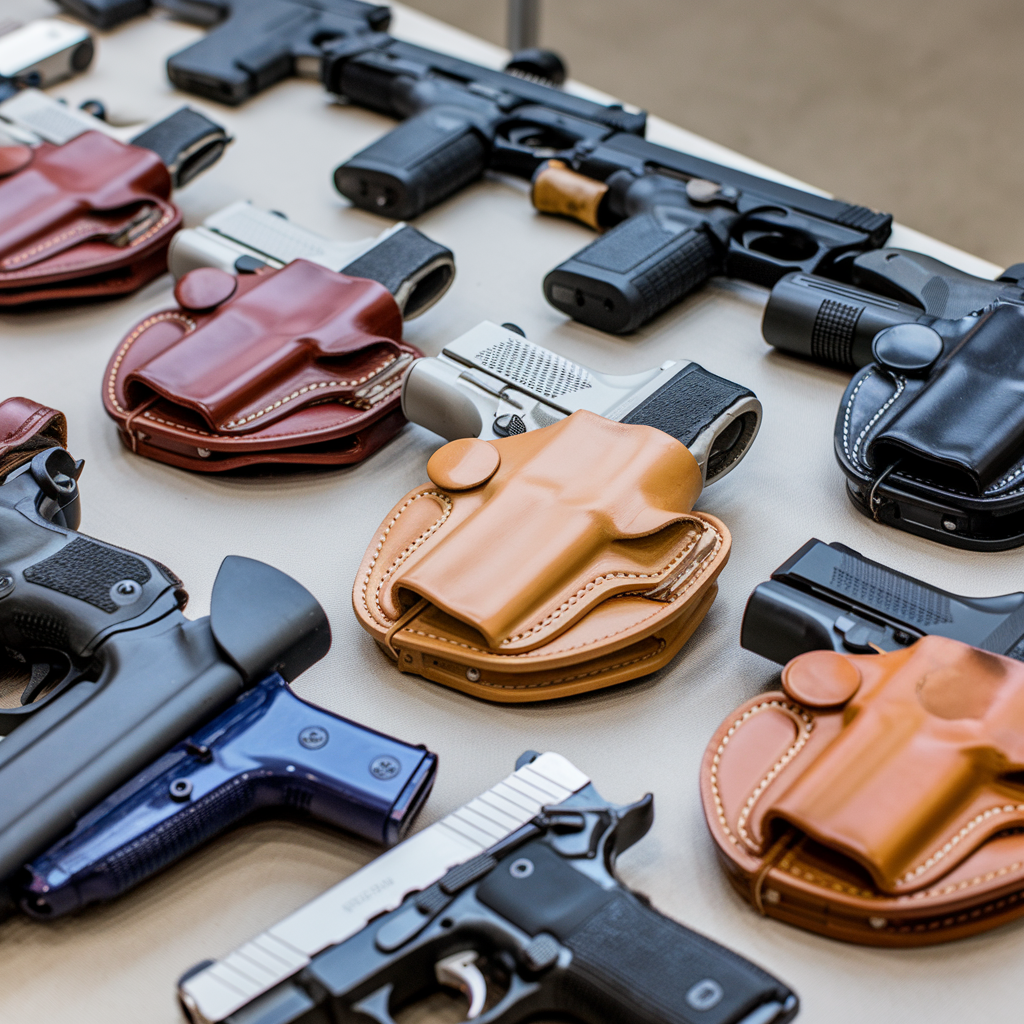Firearms Storage Laws: A State-by-State Comparison

Safe firearm storage is an essential responsibility for every gun owner. Beyond ensuring personal safety, understanding and complying with firearms storage laws can help prevent unauthorized access and potential legal consequences. In the United States, these laws vary widely by state, creating a diverse legal landscape you need to navigate based on where you live or travel. This state-by-state comparison provides an overview of firearms storage laws to help gun owners remain informed and compliant.
What Are Firearms Storage Laws?
Firearms storage laws govern how guns must be secured when not in use. These regulations often aim to prevent access by unauthorized individuals, especially children, and reduce the risk of accidents or theft. Depending on the state, the legal requirements may include:
- Using a locked container, gun safe, or secure storage device.
- Ensuring firearms are unloaded while in storage.
- Installing trigger locks or other disabling devices to prevent use.
- Specific restrictions on gun access for minors or prohibited persons.
Understanding these requirements is an essential part of responsible gun ownership.
Key Variations in State Firearm Storage Laws
While federal law provides some guidance on firearm transfers and prohibited persons, most storage-related regulations are left to individual states. Below, we explore how different states approach this critical issue.
California: Strict Regulations
California has some of the most comprehensive firearms storage laws in the country. Gun owners must secure firearms using a certified safety device or keep them locked in a gun safe whenever children or prohibited persons might have access. Failure to comply with these requirements can result in criminal penalties.
Additionally, all firearm sales in California include trigger locks or other approved safety devices, ensuring gun buyers are equipped to store their weapons responsibly from the outset.
Texas: Focus on Minors
In Texas, firearm storage laws primarily focus on protecting minors. State law prohibits making a firearm accessible to children under 17 unless the gun is stored safely or the minor has parental permission for supervised firearm use. Failure to comply can lead to misdemeanor charges if a child gains access and harm occurs.
Although Texas has fewer mandatory requirements than some states, responsible gun storage remains an expectation to ensure family and community safety.
Massachusetts: Locked Storage is Mandatory
Massachusetts enforces strict storage laws that require all firearms to be secured in a locked container or equipped with a trigger lock when not in use. Unlike in some states, these rules apply universally, regardless of whether minors or unauthorized users are present in the home.
Failure to comply in Massachusetts carries severe penalties, including fines and possible imprisonment.
Practical Tip:
If you live in Massachusetts or a state with similar laws, consider investing in a high-quality gun safe to satisfy legal requirements and provide peace of mind.
Florida: Parental Responsibilities
Florida law mandates safe firearm storage to prevent access by minors. Specifically, guns must be stored securely if a minor is likely to gain access without supervision. The law also includes penalties for parents or guardians if a child accesses a firearm and causes harm.
These requirements highlight the importance of proactive storage solutions in households with children, even in states with less restrictive regulations.
Other States with Child Access Prevention Laws
- Illinois: Requires gun locks or safes to prevent access by minors in certain situations.
- New York: Mandates locked storage whenever children under 16 are present in the home.
- Connecticut: Prohibits leaving unsecured firearms in areas accessible to minors.
These laws show a consistent trend where states prioritize child safety as a core reason for regulating firearm storage practices.
How to Ensure Compliance with Firearms Storage Laws
Staying compliant with firearm storage laws doesn’t have to be complicated. Here are actionable steps to help you meet legal obligations and protect your loved ones:
- Understand Local Laws: Research your state’s specific requirements and evaluate how they apply to your household.
- Invest in Secure Storage: Options like gun safes, lockboxes, and trigger locks can meet or exceed legal standards in many states.
- Lock and Unload: Store firearms unloaded and separate from ammunition for added safety.
- Train Your Household: Teach family members, especially children, about firearm safety and the dangers of improper handling.
- Stay Updated: Laws change over time, so check periodically for new regulations or amendments in your state.
Common Misconceptions About Firearm Storage Laws
Some gun owners may unknowingly violate firearm storage laws due to misunderstandings. Here are a few common misconceptions:
- “I don’t have kids, so I don’t need to lock up my guns.” In many states, secure storage is required regardless of whether children live in your home.
- “A hidden gun is a secure gun.” Hiding firearms without additional security features is generally insufficient under most state laws.
- “Trigger locks are enough protection.” While trigger locks can be effective, some states require additional layers of security, like using a locked container or safe.
Review your local regulations to dispel any myths and ensure full compliance.
Why Proper Gun Storage Matters
Securing your firearms goes beyond legal compliance—it’s a crucial step in promoting personal and community safety. Unsecured firearms are at greater risk of being misused, stolen, or accessed by unauthorized individuals. Proper storage practices can prevent tragic accidents and ensure responsible gun ownership.
By taking gun storage seriously, you also contribute to preserving the Second Amendment rights we all value. Demonstrating responsibility as a gun owner helps foster a positive conversation about firearms safety nationwide.
Final Thoughts
Firearms storage laws vary significantly across the United States, but the importance of safe storage is universal. By understanding and complying with your state’s regulations, you protect yourself, your family, and your community while fulfilling the responsibilities of gun ownership. If you’re unsure about the requirements in your area, consult local authorities or a trusted legal resource to keep your practices aligned with the law.
Your actions as a responsible gun owner matter. Make firearm safety and secure storage a priority today.


